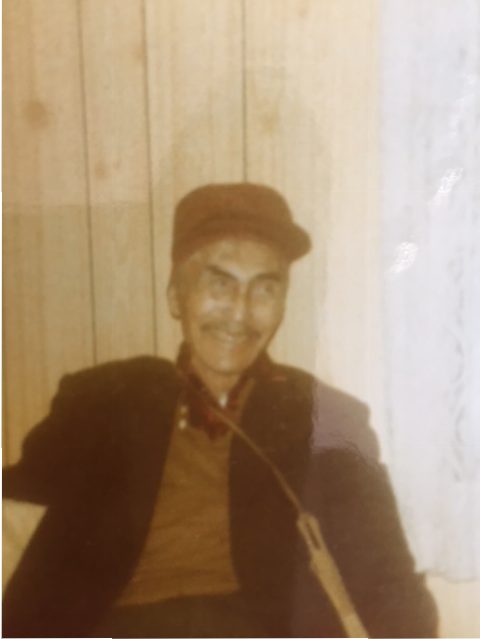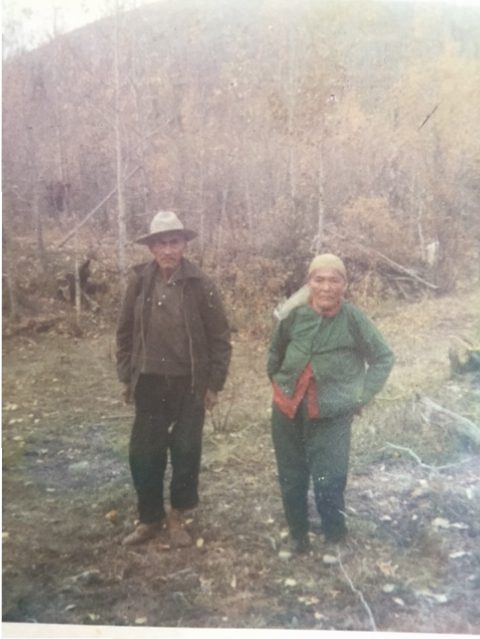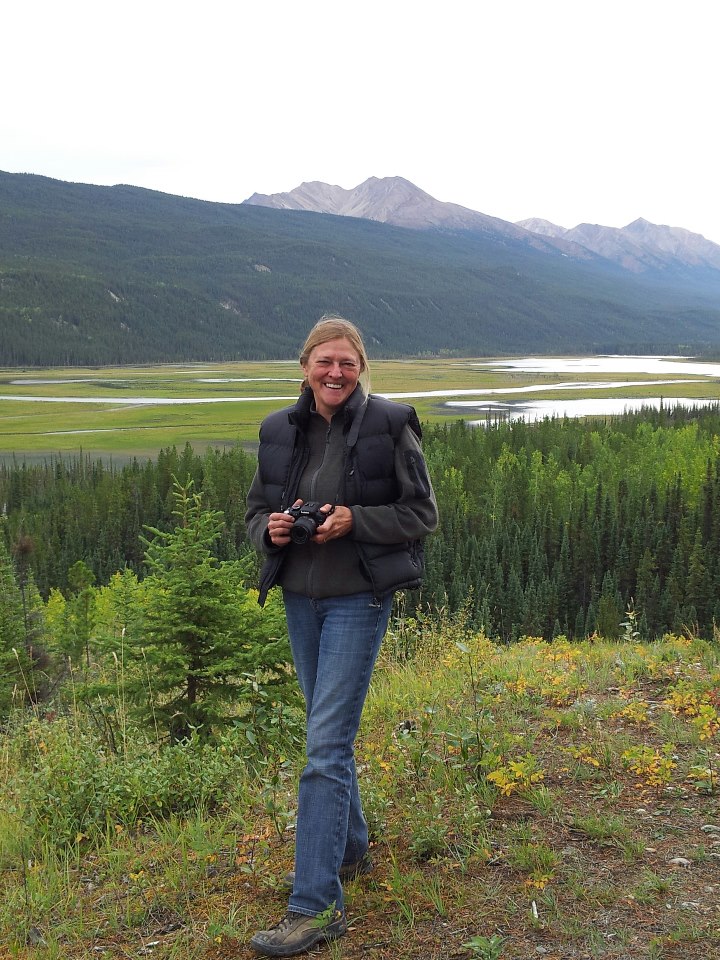Linda McDonald’s story is entwined with the highway, but it doesn’t start with her.
[Paralax of section of 1942 map they’re talking about, with the various areas mentioned]
“They got to just south of Steamboat Mountain and they needed to know the best way to get through the mountains” Linda said at a 1992 community conference about the highway, “so people said they needed to go talk to the McDonalds.”
Linda’s father’s family, Kaska like her mother’s, had long lived in the northern Canadian Rockies. In 1942, Tucker McDonald’s health was failing, but he had two sons who could help the engineers.
Charlie McDonald, Linda’s uncle, and Peter McDonald, her father, had had horses and knew the traversable terrain well.
“Charlie helped the army through that difficult area north of Fort Nelson all the way to Watson Lake,” said Linda, “And dad was 15 years younger than Uncle Charlie, so dad helped out as well.”
Charlie guided the men from southeast of the Rockies, to the Yukon border, where Linda’s mother’s family was from. Peter had moved to the Watson Lake area a few years earlier to look after Linda’s mother’s family after they were married, as was the tradition.
“I didn’t get the sense that they were treated really particularly well” said Linda, “That’s how the relationships were there then, even though Charlie and Dad were providing the horses and the knowledge and the expertise.”
“Uncle Charlie, he was a really wise man,” Linda told me, “in Kaska tradition, you had to help people, you had to share, so that’s how they treated people when they went through.”
But he was unprepared for the scene that would follow him.
“Afterwards came hundreds of cats [bulldozers],” said Linda, “it was really overwhelming.”

Charlie McDonald /Photo courtesy of Linda McDonald
With the highway came waves of diseases, which particularly affected local First Nations because they hadn’t been exposed foreign antibodies. Charlie and Peter’s younger brother were struck and brought to Whitehorse.
“There were guards guarding the highway, and so Mom and Dad [in Watson Lake] went and asked if they could catch a ride to Whitehorse,” said
“They didn’t have the permit. Now we’re were going to get the permit from? They didn’t have a letter [authorizing travel on the still military highway].”
“Uncle Art died there and then nobody from the family was able to tend to him, to his body, to bury him. Nothing.” She said, “They just got word back that he died and was buried.”
“They couldn’t even use the highway that they helped build.”

Charlie and Nellie McDonald/Photo courtesy of Linda McDonald
Nearly 50 years later, to the day, Linda would name her own son for her long-deceased uncle.
Linda didn’t see the highway built, she was born in 1957 in Watson Lake, which is on today’s road, about five hours south of Whitehorse on the Alaska Highway.
She grew up hearing vague stories about the highway, but she hadn’t talked about it much with her parents.
“Elders don’t tend to speak of the negative things readily. They just tend to carry on,” said Linda at a 1992 community conference about the highway. “Life goes on, and they speak about the positives.”
For Linda, this meant she didn’t quite understand what it was like for her relatives in 1942, until she was a grad student in Ottawa.
“So my master’s thesis was going to be on the building of the Alaska Highway, and I was at the National Archives,” said Linda.
She was looking through boxes with the designation RG-10, documents relating Indian and Northern Affairs.
“I just picked a random box because there’s a zillion,” she said, “and it says RCMP report.”
“This soldier assaulted three women.”
“Then I looked at their names and it was my mother my aunt and my grandmother.”
Linda went home for Christmas, and spoke to her mother. “ I didn’t want to talk about stuff like that, her mother told her.
The assault, the nature of which Linda never determined, was only reported because a white family friend had heard of it and contacted the authorities.
“I don’t think they would have even done that on their own,” said Linda. “They just felt so helpless you know in that society. My Mum grew up like that. She just grew up not having any sense of herself in any kind of worthy way, because society was like that.”
Linda decided not to do her thesis on the highway, “I just didn’t want to connect with the reality of it,” she said. “I ended up doing just a very sort of dry paper on how to do research with First Nations people.”
Today, Linda is working on another masters, this one in linguistics. She’s living in Watson Lake, not far from the road.

Linda McDonald at Moose Lake./Photo Courtesy of Linda McDonald